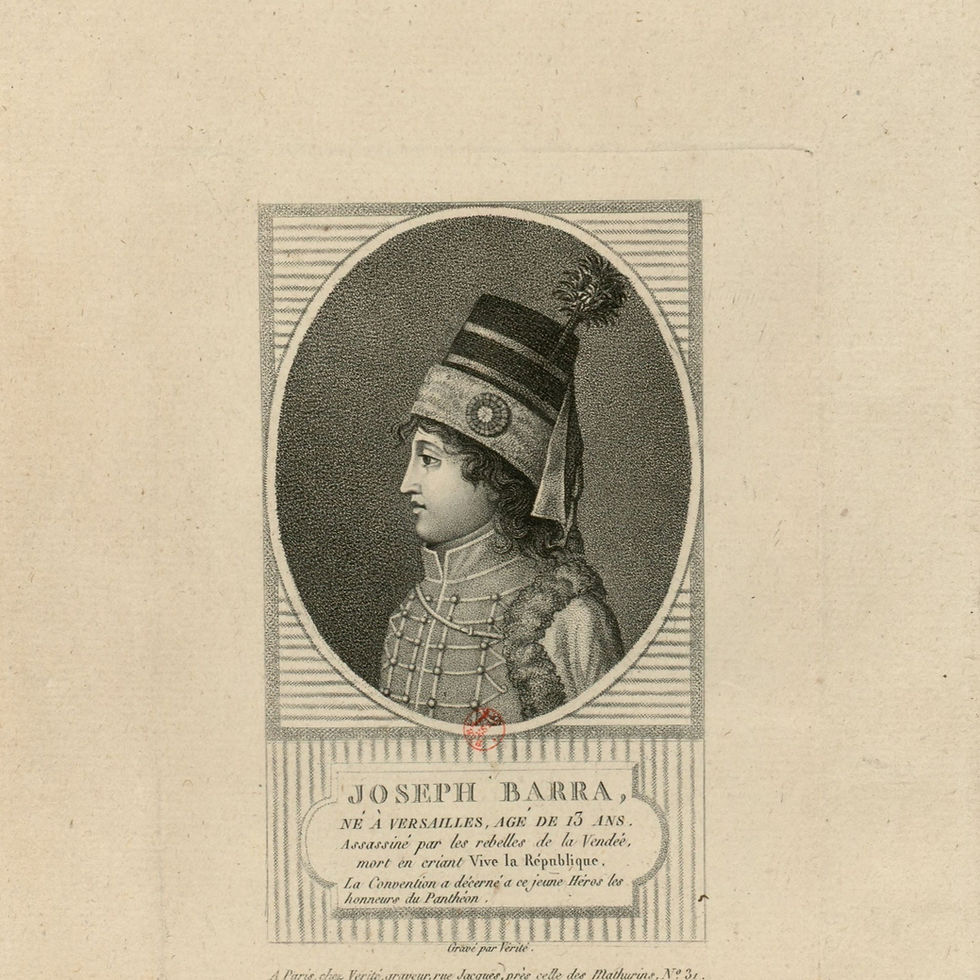Why was there so much singing?
- Patty Close
- Apr 17, 2020
- 3 min read
Updated: May 16, 2020
Why did singing play such a big role during the French Revolution?
Singing became a major part of the revolution to the people of France. The reasons for this include songs being more popular than printed media and being a fabulous medium for revolutionary ideology.
During the revolution, different forms of media experienced some very drastic differences in influence. There was a major decline in the number of newspapers and pamphlets due to restraints of government and interference from the crowd, and theater saw a striking decline as many of the actors were put in prison. Songs, however, were quite the opposite. Revolutionary songs shot up and the number of new songs in 1792 was double the number of 1791. The number also doubled again in 1793 (105, Mason). During the high point of the Terror songs were composed at an average rate of two per day (126, Leith). With the decrease of written and acted media, songs became a dominant form of media during the revolution.
The reason there was so much singing in the French revolution is because it was a brilliant medium for revolutionary ideology. Songs were able to quickly and efficiently spread the ideals of a political party while being accessible to everyone. Unlike newspapers or pamphlets, songs were usable by the illiterate. The revolutionaries thought that using songs to convey their ideas was an agreeable way to make their values known. The songs celebrated and reinforced the values of republicanism. Revolutionary music became a huge hit and songs were sung in the army, schools, theaters, and revolutionary festivals. (131, Leith)
Part of how they caught on so well has to do with the music that was used. Now it could be questioned whether the music that was prominent during a revolution was as revolutionary as the actions taking place, but it is actually the opposite. Revolutionary songs were best suited to familiar melodies because, “well-known tunes could easily be understood and remembered even by illiterate listeners”(194, Hughes). In fact, the use of familiar tunes was so common that only 5% of revolutionary songs were set to new music (129, Leith).
The most noteworthy song to come out of the revolution was The Marseillaise (War Song for the Army of the Rhine). The Marseillaise was composed in 1792 when composer Joseph Rouget de Lisle was told that France declared war on Austria. The Marseillaise soon became the chorus of the revolution and republicans could be heard singing it throughout the streets and at a vast assortment of revolutionary occasions. It’s lyrics spoke to taking up arms against the supporters of tyranny and breaking down the old notion of being forced to serve the country to the extent of slavery.
Forward children of the homeland!
The day of glory has arrived;
Against us, tyranny’s bloody standard
Has been raised.
Do you hear the roar of ferocious soldiers
Coming from the countryside?
They are coming into your very homes
To slaughter your sons and wives!
Refrain
To arms, citizens, form your battalions,
March on, march on, let impure
blood water our furrows.
The Marseillaise was a chant well known by the revolutionaries of France and quickly became the anthem of the revolution. It carries on its importance to the county and remains as the national anthem of France to this day. (The Marseillaise)
The French Revolution had an increase in songs as a media and saw them as a phenomenal medium for the ideology of the revolutionaries. The classrooms, army bases, theaters, festivals, and streets of France rang out with the rallying cries of people who came together in song to make their feelings known. The revolutionaries were steadfast in their dedication to singing and followed much the same ideology as Ella Fitzgerald when she said “The only thing better than singing is more singing.”
Marchez, Marchez!
BIBLIOGRAPHY
Hughes, Charles. "Music of the French Revolution." Science & Society 4, no. 2 (1940): 193-210. Accessed May 16, 2020. www.jstor.org/stable/40399324.
Leith, James A. "Music as an Ideological Weapon in the French Revolution". Historical Papers / Communications historiques 1, no. 1 (1966) : 126–140. https://doi.org/10.7202/030657ar
Mason, Laura. Singing the French Revolution: Popular Culture and Politics, 1787–1799. Ithaca: Cornell University Press, 2018. muse.jhu.edu/book/61619.
“The Marseillaise (War Song for the Army of the Rhine).” LIBERTY, EQUALITY, FRATERNITY: EXPLORING THE FRENCH REVOLUTION, revolution.chnm.org/items/show/622.



Comments